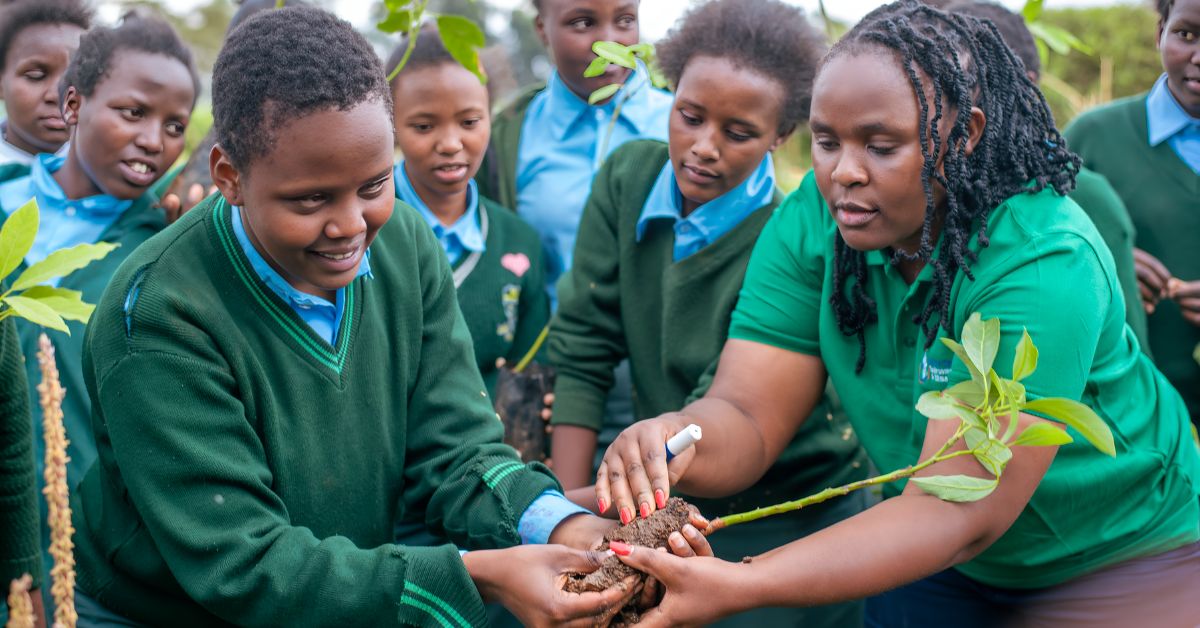Promoting Kenya’s Tree Planting Initiative: Restoring Ecosystems and Enhancing Biodiversity

Tree planting is essential for restoring our planet’s green cover, conserving biodiversity, and mitigating the effects of climate change. In Kenya, the importance of tree planting has been recognized, and campaigns are ongoing to encourage communities and individuals to contribute to these efforts. Our initiative focuses on planting indigenous trees, particularly bamboo, in riverbanks and water catchment areas. By doing so, we aim to reduce soil erosion, enhance water retention, and combat deforestation—factors critical to the well-being of Kenya’s ecosystems and biodiversity.
Why Indigenous Trees Matter
Indigenous trees play a pivotal role in maintaining Kenya’s natural heritage. Unlike exotic tree species, indigenous trees are adapted to the local climate and soil conditions, making them highly resilient. They support a diverse range of flora and fauna, offering habitat and food for Kenya’s native wildlife. By focusing on indigenous tree species, our initiative aims to:
- Preserve Kenya’s Unique Ecosystems: Indigenous trees contribute to the ecological balance, creating habitats that support the survival of various plant and animal species.
- Promote Soil Health: These trees often have deep root systems, which help prevent soil erosion and enrich the soil with nutrients.
- Improve Water Conservation: Indigenous trees are well-suited to retain water in the soil, helping regulate water flow in river systems, which is essential for sustaining rivers and streams year-round.
The Unique Role of Bamboo in Ecosystem Restoration
Bamboo is one of the most sustainable plants for soil conservation and water retention, especially in riverbank areas and water catchments. Often called “the green gold of the forest,” bamboo offers several environmental benefits that make it a priority in our tree planting campaigns:
- Erosion Control: Bamboo’s extensive root network anchors soil, making it highly effective at preventing erosion along riverbanks.
- Water Conservation: With high water absorption capabilities, bamboo helps in retaining water in the ground, aiding the recharge of groundwater and reducing the impact of droughts.
- Fast Growth and Sustainability: Bamboo grows faster than most trees, reaching maturity in three to five years. Its fast growth rate allows for quicker reforestation and ecosystem recovery.
By promoting the planting of bamboo along riverbanks and water catchments, we are directly addressing soil degradation and water scarcity issues, which are increasingly critical in Kenya’s agricultural and water-dependent communities.
Tree Planting to Combat Deforestation in Kenya
Deforestation has had severe impacts on Kenya’s environment, contributing to habitat loss, climate change, and reduced biodiversity. Tree planting is an effective strategy to reverse these trends. Our initiative encourages the planting of indigenous trees in areas affected by deforestation, particularly in regions where agricultural expansion and logging have significantly reduced forest cover. By restoring these areas, we aim to:
- Rehabilitate Degraded Lands: Planting trees in deforested regions helps rebuild soil health, making these areas more productive and resilient.
- Reduce Carbon Emissions: Trees act as carbon sinks, absorbing CO2 from the atmosphere. Increased tree cover in deforested areas can help offset greenhouse gas emissions.
- Support Local Livelihoods: Indigenous trees and bamboo provide various resources such as medicinal herbs, food, and timber for sustainable harvesting, supporting the livelihoods of nearby communities.
Engaging Communities for Sustainable Tree Planting
Community involvement is vital for the success of tree planting campaigns. By partnering with local communities, schools, and organizations, our initiative educates and empowers people to take an active role in environmental conservation. Activities such as tree planting events, workshops, and educational campaigns inspire people to understand the significance of indigenous trees and bamboo in maintaining ecosystem balance.
Our initiative also emphasizes the importance of tree care and maintenance, ensuring that planted trees are protected and nurtured as they grow. Community-led monitoring efforts have been established to help track the progress of newly planted trees and to address any challenges, ensuring long-term success.
Benefits of Tree Planting for Kenya’s Future
Investing in tree planting now offers a host of benefits for Kenya’s future generations:
- Biodiversity Conservation: By enhancing natural vegetation cover, we create sanctuaries for Kenya’s diverse wildlife, helping protect endangered species and boosting the natural ecosystem.
- Enhanced Climate Resilience: Tree planting combats the effects of climate change by stabilizing temperatures, improving rainfall, and reducing extreme weather impacts.
- Improved Quality of Life: Healthy ecosystems contribute to clean air and water, which are essential for the well-being of communities, particularly in rural and urban areas facing pollution challenges.
Conclusion: Join Us in Creating a Greener Kenya
Our tree planting campaign goes beyond merely planting trees. It is a movement to restore, conserve, and protect Kenya’s unique ecosystems for future generations. By focusing on indigenous species like bamboo, we address pressing environmental challenges such as soil erosion, water scarcity, and deforestation. We invite everyone to join us in this crucial endeavor—whether by planting trees, spreading awareness, or supporting our efforts. Together, we can create a greener, healthier Kenya, where ecosystems flourish, and biodiversity thrives.